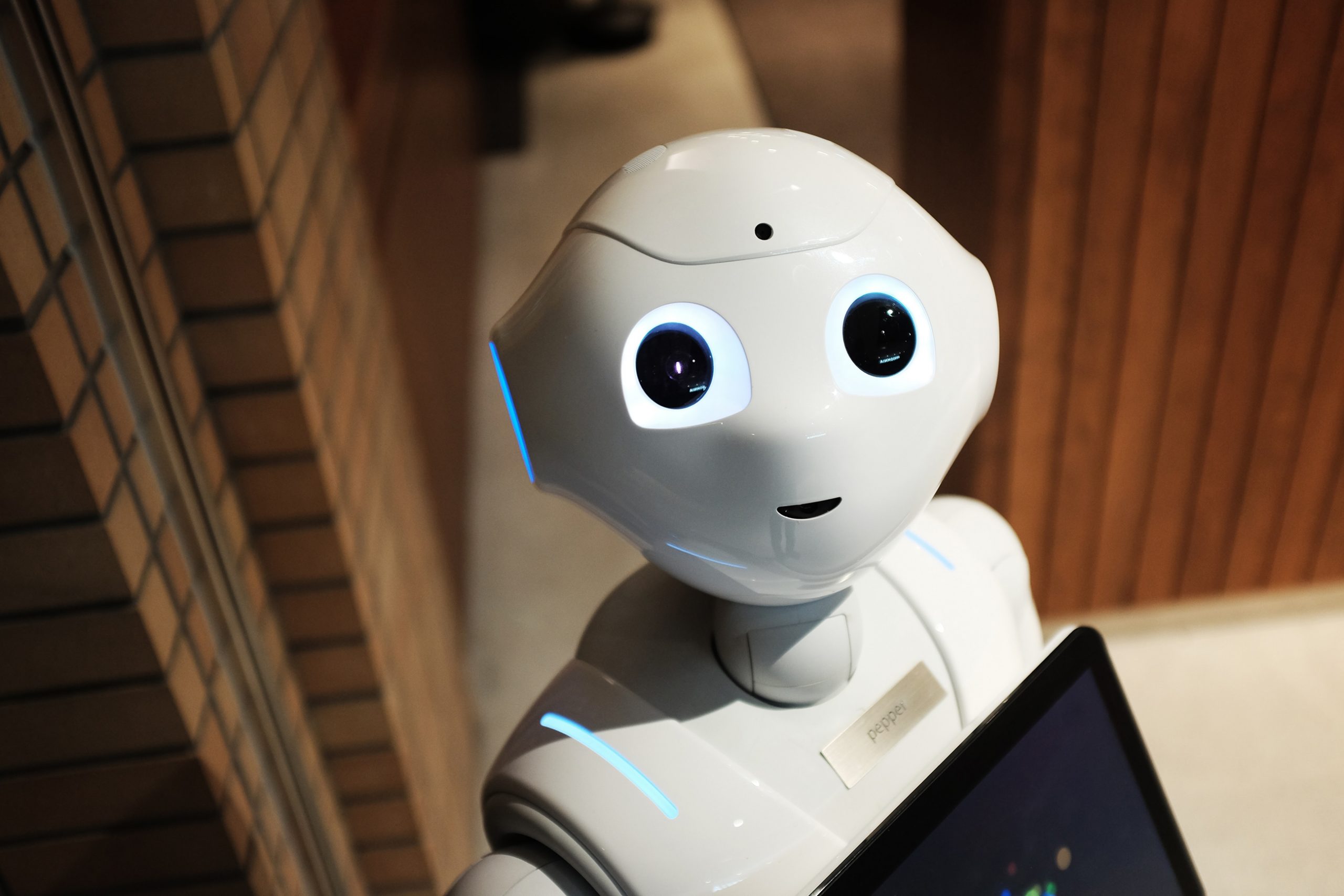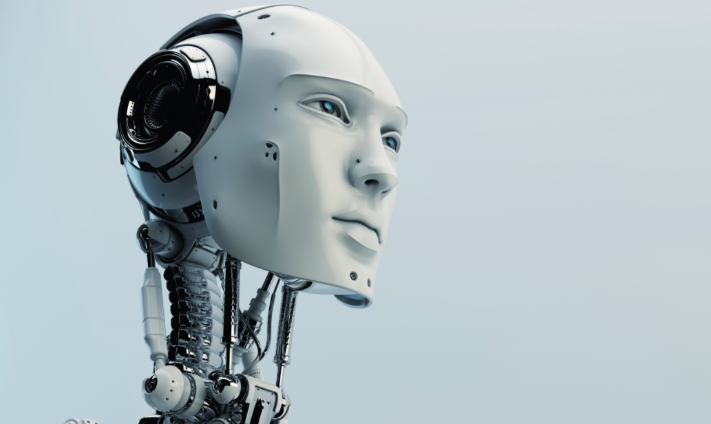Each week, we create content for our Amply network of global publishers and right now the theme that everyone wants to discuss is AI and its impact on the future of work.
 Google registered a search interest of 100––its highest ranking––for the search term “generative AI” in the week of February 12th, 2023. It won’t be a surprise to find that this was prompted by the November 2022 introduction of ChatGPT, an AI chatbot model developed by OpenAI.
Google registered a search interest of 100––its highest ranking––for the search term “generative AI” in the week of February 12th, 2023. It won’t be a surprise to find that this was prompted by the November 2022 introduction of ChatGPT, an AI chatbot model developed by OpenAI.
Compare this surge in curiosity to six months earlier: in December of 2022, search interest was at 34, and in October, pre-launch, it was at a far lower seven.
It’s clear that generative AI, in particular ChatGPT, has hit the public consciousness like a juggernaut. Globally, people aren’t just finding out about it; they are also using ChatGPT, as well as other associated tools such as image generators DALL-E and Midjourney.
ChatGPT has experienced the fastest growth in history for a consumer application. It took the platform just two months to reach over 100 million users.
Compare that to TikTok, which took about nine months after its launch to hit the same benchmark, and it took Instagram even longer at around two and a half years. Google Translate took six and a half years to reach that milestone.
It’s not so surprising: the chatbot is super simple to use––ask it a question and it’ll come back with an often surprisingly accurate and erudite answer. It can generate Python code as easily as it can be used to write a funny Limerick. You can get it to finesse your CV, write a detailed travel itinerary––and a lot more.
Of course, it is not standing still. The next iteration of the chatbot, GPT-4, launched in March of this year. According to Grand View Research, it is “expected to have applications across various languages applications, including text summarization, grammar correction, language translation and classification, chatbots, and code generation.”
Is your job vulnerable to AI?
But the thing most people want to know is, will it take your job?
The answer is, it depends.
The positive news is that The World Economic Forum (WEF) estimates 97 million new jobs will emerge by 2025 to enable humans and machines to work together. However, the WEF tempers this with the prediction that 85 million jobs will either decrease in impact, or disappear as a result of increased automation.
Countering that is a recent Goldman Sachs study which found that generative AI tools could impact as many as 300 million full-time jobs worldwide.
This isn’t necessarily a reason for mass panic. Another recent study by the American economist David Autor pointed out that 60% of today’s workers are employed in occupations that didn’t exist in 1940; jobs and sectors change all the time.
Whether or not your role or sector is vulnerable comes down to the type of work you do. Those in customer support roles may be at risk: Amazon employees who tested ChatGPT found that it does a “very good job” of answering customer support questions.
It may also have implications for entry-level coding positions. Google has found that in tests, ChatGPT would be hired for its L3 positions, which usually apply to new college graduates or those in their first coding job.
Goldman Sachs’ report says that legal workers and administrative staff are also particularly at risk from generative AI technology. Bookkeeping or accounts roles are likely to be replaced too, as software can do many of these tasks. In a more general sense, manufacturing workers are likely to be replaced in their millions, as their jobs are replaced with smart machinery that does the same tasks, but faster.
Rise of new jobs
Tempering this however, is the fact that AI looks set to create plenty of new jobs. Prompt engineering is just one example. Prompt engineers refine the large language models (LLMs) used by AI tools, with specific prompts and recommended outputs.
 Fact-checkers will also be needed: while generative AI is extremely useful, its outputs are all created from millions, or billions of inputs, and so the results need to be verified by humans.
Fact-checkers will also be needed: while generative AI is extremely useful, its outputs are all created from millions, or billions of inputs, and so the results need to be verified by humans.
Other roles in growth include data science jobs, robotics engineers, machine managers, and programmers––particularly those who can code in Python which is key for AI development.
Those with capabilities related to modelling, computational intelligence, machine learning, mathematics, psychology, linguistics, and neuroscience will also be in demand.
In healthcare, PwC is estimating that AI-assisted healthcare technician jobs will see an upward surge. A sector that is already creating new jobs is automated transportation with Tesla, Uber, and Google investing billions into AI-driven self-driving cars and trucks.
Your new best friend
For many workers, the most likely impact of AI technology is that it won’t replace them, but it will make their jobs easier, taking on more menial tasks that leave people open to the areas that really interest them.
Energy supplier Octopus says that AI is already doing the work of 200 people at the company, and that it has gotten an 80% customer satisfaction rating from emails written by AI, compared to 65% from those written by humans. But AI is not replacing workers, rather, they have been moved to other tasks, like answering phones.
For software engineers, it can be used to identify bugs, suggest fixes and as a result, improve the accuracy and speed up the development process.
Goldman Sachs’ report says that if generative AI is widely implemented, it could lead to significant labour cost savings, estimating that AI could even eventually increase annual global GDP by 7%.
The World Economic Forum says it best: “The most successful companies will be the ones investing in talent that can work most effectively alongside AI and other intelligent applications. With mechanical and cloud-based lifeforms appropriately leveraged, human employees with the right skills are liberated to be their brilliant best.”
Perhaps there’s no need to panic, just yet.
Read more
We’ve written extensively about AI across our partner network. Discover some of that below.
- Discover the new jobs generative AI could create in the future on The Next Web
- Is AI coming for your job? On The Hill, we look at the skills you need to beat the bots
- Could AI be about to take over your job? We explore the reality on TechSpot
- On Euronews, we look at how working on your soft skills could save your job from being made redundant by AI











